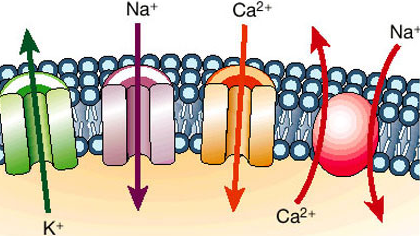Robert Eisenberg Lecture

The department is very pleased to announce the forthcoming lecture by Robert Eisenberg. As the keynote speaker for Loyola's Science Week, Dr. Eisenberg will share his perspective on the interplay between medicine, science, engineering, and mathematics. (All lectures and events during Science Week are targeted at undergraduates interested in majoring in the sciences.)
Coordinates: Tuesday, October 22, 4:30 p.m.,
Quinlan LSB Auditorium. Refreshments at 4:00 p.m.
Speaker: Robert Eisenberg (Rush University Medical Center, Department of Molecular Biophysics & Physiology *)
Title: Science Makes our World Livable and Humane
Abstract: Science and engineering make things that work. Science does experiments to check that its guesses are good enough. Scientists measure the same thing no matter who makes the measurements, no matter how the scientist feels. Scientific laws summarize these measurements and are often accurate to many decimal places. Engineering makes devices that work, or else. Almost nothing can be built without numbers. Almost nothing substantial can be built without using scientific laws.
Most of human experience does not follow laws like this. But our standard of living depends on the small part of life that does follow scientific laws. Think how different our life would be without electricity, without computers, without video games, without buildings (above three stories), without airplanes, without piped in water, or piped out sewage! Biological systems are particularly important to us because they create such pain when they do not work, and such pleasure when they do work. Biological systems have a lot of parts and so have only recently been described by numbers.
In this walk, I will show you a small but important part of biology where numbers matter. This part of biology describes molecules with tiny holes of diameter about 0.0000000006 meters (i.e., 0.6 nanometers). These channels control how we taste, see, and think about things. Mathematics is needed to explain how they work and I will show you just a bit of that. When these channels do not work correctly, the heart stops, and we have 30 seconds or so of consciousness. I will show what we know about these channels and how we are trying to make them work better.
(*) Beyond, "department chair" Dr. Eisenberg has also held a number of distinguished positions in an assortment of departments throughout the world that fairly indicates the interdisciplinary nature of his work: Miller Institute Professor at UC Berkeley (Chemistry), Visiting Scholar at Pennsylvania State (Mathematics), Senior Scientist at Argonne National Laboratory (Mathematics and Computer Science Division), and Schlumberger Visiting Professor at Cambridge (Chemistry).
